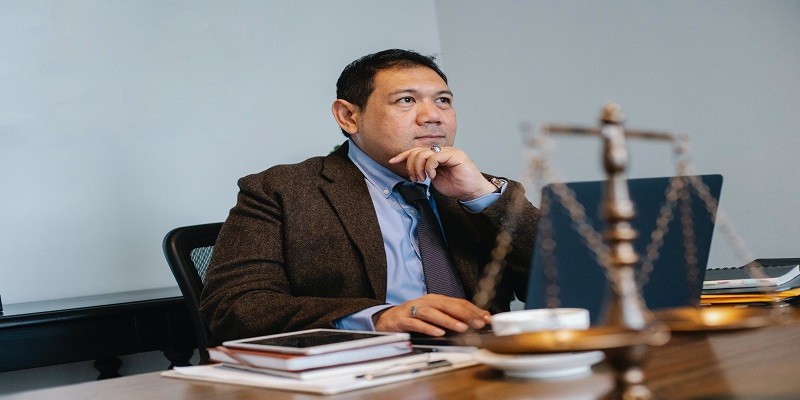Last Updated on January 15, 2025
In child custody cases, the judge can order either spouse or the other parent to pay attorney fees, even if one party has more financial resources than the other.
The Allocation Of Attorney Fees
In child custody cases, the judge can order the other parent or spouse to contribute towards the attorney fees, even if you have some money to pay for them. The court will consider the financial situation of both parties before making a decision.
The Judge’s Authority To Order One Party To Pay The Attorney Fees Of The Other
In child custody cases, the judge holds the authority to order one party to pay the attorney fees of the other. This means that if you’re involved in a custody dispute and your spouse or the other parent has significantly more financial resources than you do, the court can order them to assist in covering some or all of your attorney fees. It’s important to note that this decision is at the judge’s discretion and can vary depending on the specific circumstances of the case.
Factors Considered In Determining Whether Attorney Fees Should Be Awarded
The court takes several factors into consideration when determining whether attorney fees should be awarded. These factors include:
- The financial resources of each party involved in the custody case.
- The earning capacity of each party.
- The time and level of complexity involved in the case.
- The conduct of both parties during the legal proceedings.
- Any other relevant factors that the court deems necessary to consider.
The Impact Of The Financial Resources Of Each Party On The Allocation Of Attorney Fees
The financial resources of each party involved in the child custody case significantly impact the allocation of attorney fees. If one party has a considerable amount of financial resources compared to the other, the court may order them to bear a more substantial portion of the attorney fees. This allocation ensures that both parties have equal access to legal representation and the opportunity to present their case effectively.
Attorney Fee Awards In Family Law Cases
In child custody cases, the judge has the discretion to order one party to pay for all or part of the attorney fees. This can be based on their financial situation, even if both parties have some money to pay for legal representation.
Each state may have different rules regarding who pays the attorney fees in child custody cases.
In family law cases, attorney fees can be a major concern for individuals going through divorce or child custody disputes. While it is generally expected that each party will bear the responsibility of paying for their own legal representation, there are exceptions and special circumstances where the court may intervene.
Exploring The General Rule Of Parties Being Responsible For Their Own Attorneys’ Fees
According to the general rule in family law cases, each party is responsible for paying their own attorney fees. This means that if you decide to hire a lawyer to represent you in a child custody case, you would need to cover the expenses associated with their services. However, this can pose a financial burden for individuals who may not have the necessary resources to afford quality legal representation.
Exceptions To The General Rule In Certain Family Law Matters
While parties are typically responsible for their own attorney fees, there are exceptions to this general rule. In certain family law matters, the court has the discretion to order one party to contribute to the other party’s attorney fees. This is particularly applicable in cases where a significant disparity exists in the financial resources between the parties involved. For example, if one party has much greater financial resources than the other, the court may order them to assist in covering the legal expenses of the financially disadvantaged party.
How The Court Exercises Discretion In Awarding Attorney’s Fees And Costs
When determining whether to award attorney’s fees and costs, the court takes into consideration various factors. These factors include the financial resources of each party, their ability to pay, the reasonableness of the requested fees, the complexity of the case, the skill level and experience of the attorneys involved, and the overall fairness of the situation. The court aims to ensure that both parties have access to competent legal representation, even if one party may require assistance in covering the associated costs.
While the general rule in family law cases is that parties are responsible for their own attorney fees, there are exceptions where the court may order one party to contribute to the other party’s legal expenses. This is done to ensure fairness and accessibility to proper legal representation for all parties involved in divorce or child custody disputes.
Attorney’s Fee Rules In California Family Law Cases
In child custody cases in California, the judge may order the other parent to pay for some or all of the attorney fees. Even if you have some money to hire a lawyer, the court can still require the other person to contribute if they have more resources.
Understanding the rules around attorney fees is important in navigating family law cases.
A Discussion On The Different Types Of Cases That May Involve Attorney Fee Orders
In California, attorney fee orders can be applicable to various types of family law cases. These cases include:
- Divorce cases: When a couple decides to dissolve their marriage, attorney fees may be part of the divorce settlement. The court considers factors such as the financial capacity of each spouse and the complexity of the case when making a decision.
- Child custody cases: Disputes related to child custody can also involve attorney fee orders. The court may order one parent to pay the other party’s attorney fees if there is a significant difference in income or financial resources.
- Child support cases: When determining child support payments, the court may consider attorney fees as part of the financial arrangements. If one parent lacks the financial resources to hire an attorney, the other parent may be required to contribute to their fees.
- Domestic violence cases: In situations where domestic violence is involved, the court may order the abusive party to pay the attorney fees of the victim. This is done to ensure equal access to legal representation.
- Spousal support cases: Attorney fee orders can also be relevant in spousal support cases. The court may consider the financial circumstances of both parties when deciding whether one spouse should contribute to the other’s attorney fees.
Factors Influencing The Determination Of Attorney Fees In California
When it comes to determining attorney fees in California family law cases, the court considers various factors, which include:
- The financial resources of each party: The court evaluates the income, assets, and overall financial situation of both parties involved in the case.
- The need for legal representation: If one party lacks the financial means to afford legal representation, the court may order the other party to contribute to their attorney fees.
- The complexity of the case: Cases with complicated legal issues or extensive litigation may result in higher attorney fees.
- The conduct of the parties during the case: If one party engages in behavior that prolongs the litigation or increases the complexity of the case, the court may consider this when determining attorney fees.
- The disparity in financial resources: If there is a significant difference in the financial resources of the parties, the court may order the financially advantaged party to contribute to the attorney fees of the other party.
- The overall fairness and equity of the situation: The court aims to ensure equal access to legal representation and may order attorney fee awards to level the playing field.
Understanding When The Court May Order Payment Of Attorney Fees In Family Law Cases
In family law cases in California, the court has the discretion to order one party to pay the attorney fees of the other party. The court considers the factors discussed above to ensure fairness and equity in the legal process. It is important to note that attorney fee orders are not automatically granted in every case. The judge carefully evaluates the circumstances and makes a decision based on the specific details of the case. Therefore, it is crucial to consult with a knowledgeable family law attorney who can provide guidance on the likelihood of obtaining attorney fee orders in your particular situation.

Credit: gisondolaw.com
Frequently Asked Questions On Who Pays Attorney Fees In Child Custody Cases?
How Much Does A Child Custody Lawyer Cost In Mississippi?
The cost of a child custody lawyer in Mississippi varies. The judge can order one parent to pay part or all of the fees, depending on their financial situation. Even if you have some money to pay for a lawyer, the court can order the other parent to help cover your costs if they have more money.
How Much Is A Child Custody Lawyer In California?
In child custody cases in California, the judge can order the other parent to pay for part or all of the attorney fees. Even if you have some money to pay for a lawyer, the court may require the other party to contribute if they have more financial resources.
How Much Is It To File A Petition For Custody In Texas?
The cost to file a petition for custody in Texas varies. It depends on factors such as the court fees, attorney fees, and any additional expenses. It is recommended to consult with a family law attorney to get an accurate estimate of the costs involved.
Who Pays Attorney Fees In Child Custody Cases In Indiana?
In child custody cases in Indiana, each party is responsible for their attorney’s fees. However, the court can order one party to pay all or part of the costs if there is a significant difference in financial resources.
Who Is Responsible For Paying Attorney Fees In Child Custody Cases?
In child custody cases, the responsibility for paying attorney fees can vary. The judge has the discretion to order either party, based on their financial capabilities, to contribute towards the attorney fees.
Conclusion
In child custody cases, the question of who pays the attorney fees can be a significant concern. The judge has the power to order one parent or the other to cover all or some of the costs. Even if you have some funds to hire a lawyer, the court may order the other party to help with the fees if they have more financial resources.
It is essential to understand the rules and possibilities in your specific jurisdiction to navigate this aspect of child custody cases successfully.

